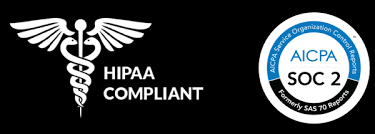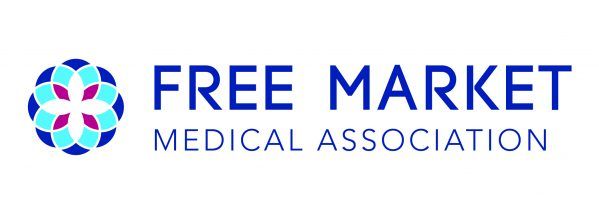Health Compiler and Hint Collaborate to Enhance Primary Care Practice Growth

Monica McKitterick
From Solo Practitioner to Visionary CEO: Monica McKitterick’s Success Story
Introduction
As healthcare continues to evolve, the Direct Primary Care (DPC) model emerges as a shining example of innovation. Monica McKitterick, a family nurse practitioner and the founder of Impact Family Wellness, is at the forefront of this movement. With three thriving locations in the Austin area, a dedicated team and a growing patient base of 1800, Monica is redefining primary care. Her approach is not just about building a successful practice but about reimagining the entire healthcare system to prioritize patient care and provider satisfaction.
In a recent Conversation, Monica shared her journey, insights, and passion for transforming healthcare one patient at a time. Her story is about more than just treating illnesses; it’s about creating a holistic, patient-centered environment where both patients and providers thrive. Through her leadership, Impact Family Wellness is setting a new standard in healthcare, proving that with the right vision and dedication, it is possible to create a system that truly prioritizes the well-being of all involved.
The Journey to Direct Primary Care
Monica’s path to becoming a Direct Primary Care (DPC) pioneer was anything but conventional. After spending a decade in insurance-based care, she found herself at a crossroads. At 35 years old, she grappled with the question of what she truly wanted to do with her life.
It was during this pivotal moment that a Facebook ad caught her attention. The promise of a primary care model that offered financial success and work-life balance intrigued her. Monica decided to dive headfirst into researching the DPC model. She immersed herself in information, delving into the intricacies of this innovative approach to healthcare.
With newfound conviction, Monica approached her husband—an MBA holder—with her vision. “Hey,” she said, “I’m going to open my own practice where I can see fewer patients, provide better care, have greater control over my time, and still earn the same income.” Her husband’s initial skepticism didn’t deter her; instead, it fueled her determination.
Monica meticulously crafted a business plan, securing $20,000 in funding. She took a leap of faith, relocating to Texas. Just three weeks later, she opened her DPC practice. Although she had convinced only 23 people before opening her doors, Monica’s unwavering belief in her mission drove her forward.
From those humble beginnings, Impact Family Wellness emerged a thriving practice with multiple locations. Monica’s journey exemplifies the power of vision, determination, and a genuine desire to revolutionize patient care. Her success story inspires others to challenge conventions, embrace innovation, and make a lasting impact in the world of healthcare.
The DPC Difference: A New Approach to Healthcare
Monica’s passion for the Direct Primary Care (DPC) model is evident as she highlights its key benefits. “We achieve four crucial objectives,” she explains. “First, we focus on a smaller patient panel for personalized care. Second, this allows us to provide superior care. Third, we gain control over our schedules for better work-life balance. And fourth, we maintain income levels comparable to traditional models.”
But DPC's impact goes beyond practitioner satisfaction, revolutionizing patient care. Monica stresses, “Having health insurance doesn’t guarantee quality healthcare. DPC bridges that gap, offering accessible, personalized care without the constraints of insurance-based systems.”
Central to DPC is its focus on preventive care and accessibility. Monica’s practice offers telemedicine and after-hours care, ensuring patients can reach them whenever needed. This proactive approach not only improves health outcomes but also reduces costs by cutting down on emergency room visits and specialist referrals.
For employers, incorporating DPC into benefits packages can be a game-changer. Monica notes, “In today’s competitive market, offering DPC sets you apart. Employees increasingly value comprehensive, accessible healthcare, and by offering DPC, you show a commitment to their well-being.”
The DPC model also leads to long-term savings for employers and employees by focusing on preventive care and reducing absenteeism. This holistic approach not only improves individual health outcomes but fosters a more productive and satisfied workforce.
Monica’s advocacy underscores DPC’s potential to reshape healthcare by aligning the interests of providers, patients, and employers. As awareness of this model grows, it promises to drive positive change in the delivery of primary care.
Challenges and Opportunities in DPC
While the DPC model offers numerous advantages, it is not without its hurdles. One of the most significant challenges, as noted by Monica, is raising awareness. "We have a solution to people's problems, but they don't even know that solution exists," she explains. This lack of public understanding often makes traditional marketing approaches less effective for DPC practices, compelling them to prioritize educational outreach and active community engagement over conventional advertising strategies.
Another challenge is navigating the intricate landscape of healthcare regulations and insurance. Although DPC provides an alternative to the insurance-based model, Monica points out that catastrophic coverage still has its place. "If you're managing type 1 diabetes and need an insulin pump, you should have insurance," she advises, emphasizing that while DPC can handle most day-to-day care, there are circumstances where comprehensive insurance is necessary.
However, these challenges are ripe with opportunities for innovation and growth. Monica identifies potential in forging partnerships with self-funded employers and school districts to deliver holistic healthcare solutions. In fact, she has even pitched the idea of establishing DPC clinics within schools, demonstrating the model’s adaptability and its potential for large-scale implementation. By positioning DPC as a flexible and comprehensive alternative, the model is poised to address gaps in the healthcare system while expanding its reach.
Advice for Aspiring Direct Primary Care Providers
For healthcare professionals contemplating a transition to Direct Primary Care (DPC), Monica offers both inspiration and practical insights. "It takes a lot of work, takes a lot of effort. It's not gonna be easy, but it is absolutely 100% worth it because you get to get back to what you went to school for," she advises, highlighting the rewarding aspects of a DPC model.
Monica underscores the necessity of adopting a business-owner mindset and being prepared to tackle roles beyond those typically handled in traditional healthcare settings. "You're an advocate for your patient. And so you're gonna pick up the phone and schedule the MRI for them. You just have to show your value, and that is customer service," she explains. Embracing this comprehensive approach to patient care is essential in delivering the high level of service that distinguishes DPC practices.
For those starting without an established patient base, Monica stresses the importance of proactive marketing and community engagement. "You're not just going to put a sign up out front and people are gonna come," she warns. "You're gonna have to do marketing." Effective outreach and visibility are crucial for attracting and retaining patients in the competitive healthcare landscape.
Perhaps most critically, Monica emphasizes the need for exceptional care and a genuine commitment to patients. "If you want to be a mediocre provider, then don't do it because you have to be a badass," she asserts. "You have to be good at what you do. You have to have the personality that people like because people are going to walk in the door because of you." Her advice serves as a reminder that excellence and authenticity are key to thriving in the DPC model.
The Future of Healthcare
The future of healthcare is increasingly leaning towards personalized, patient-centered care models, with Direct Primary Care (DPC) emerging as a prime example of this transformative shift. DPC offers a strong patient-provider relationship, bypassing traditional insurance-based models to provide comprehensive care for a flat monthly fee. This approach not only enhances patient satisfaction and access to care but also allows healthcare providers to focus more on quality than quantity.
Monica, a passionate advocate for DPC, envisions it at the forefront of revolutionizing the healthcare landscape. Her dedication drives her to educate both the public and policymakers about its numerous benefits. "I would produce a compelling three-minute public service announcement, ensuring that every individual in this country is aware of a viable alternative to substandard healthcare," Monica asserts.
Technological advancements are pivotal in shaping this healthcare future. The integration of electronic health records (EHRs), telehealth services, and data analytics tools streamlines operations, improves patient engagement, and enables personalized care plans. Data analytics, in particular, can help identify patient care gaps and enhance chronic disease management, leading to better health outcomes and cost savings.
Moreover, the future of healthcare is likely to see a greater emphasis on preventive care, with DPC practices leading the way in offering wellness services that aim to keep patients healthy and reduce the need for expensive treatments or hospitalizations. Monica identifies significant opportunities for DPC to bridge healthcare disparities and enhance access to quality care. By offering affordable, personalized medical services free from the constraints of traditional insurance models, DPC stands to reach underserved populations and drive substantial improvements in overall health outcomes.
The collaboration between healthcare providers and technology companies is crucial for developing innovative solutions that address the challenges of healthcare marketing and patient education. This synergy, combined with the DPC model, positions the healthcare industry for a future that is more equitable, effective, and patient-centered. Monica's vision of DPC as a crucial tool in creating a more accessible and efficient healthcare system aligns perfectly with the broader trends shaping the future of healthcare delivery.
Conclusion: A Call to Action
Monica transformation from a healthcare provider to the founder of Impact Family Wellness is more than a success story—it’s a rallying cry for healthcare professionals, policymakers, and patients to rethink primary care.
The Direct Primary Care (DPC) model offers a compelling solution to the many challenges in our current healthcare system. By prioritizing the doctor-patient relationship, focusing on preventive care, and utilizing technology, DPC has the potential to enhance health outcomes, lower costs, and boost satisfaction for both providers and patients.
Monica’s journey shows that transforming healthcare is challenging but immensely rewarding. For healthcare providers feeling burnt out or disillusioned, DPC offers a chance to reignite their passion for patient care. For patients tired of long wait times and impersonal care, it provides a patient-centered alternative.
The revolution in primary care is here, and Monica McKitterick is at the forefront. Her vision, determination, and success are not just inspirational—they are a roadmap for those ready to embrace change and make a real impact in their patients’ lives
Find her on Google: Direct Primary care in Cedar Park, TX 78613 or visit the website:
www.impactfamilywellness.com
Interested to share your story?
Contact us today & Let us know!
We will get back to you as soon as possible
Please try again later

+1 415 657 8241
Health Compiler Inc.
2261 Market Street #4632
San Francisco, CA 94114
All Rights Reserved | Health Compiler Inc.
Made with ❤️ in San Francisco

QUICK LINKS
RESOURCES
LET'S STAY IN TOUCH
Contact Us
We will get back to you as soon as possible.
Please try again later.

